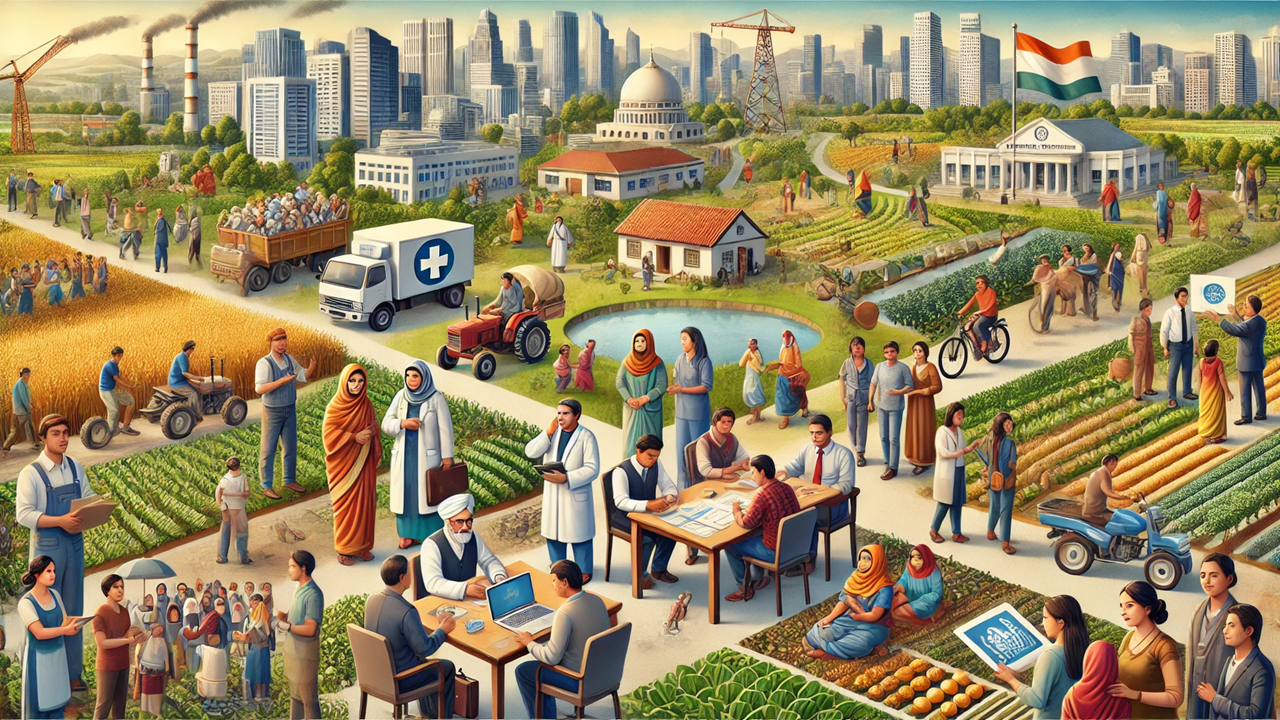Rethinking Social Protection in South Asia: A Call for Progressive Universalism
The World Bank report "Rethinking Social Protection in South Asia: Toward Progressive Universalism" calls for a comprehensive overhaul of social protection systems in South Asia. It highlights the region's economic growth, persistent poverty and inequality, and the compounded challenges of recent crises and climate change. The report advocates for progressive universalism, emphasizing equity, resilience, and opportunity, and strengthening social protection systems to better serve the most vulnerable populations.

In a recent report by the World Bank titled "Rethinking Social Protection in South Asia: Toward Progressive Universalism," experts delve into the multifaceted challenges and opportunities facing the region's social protection systems. Authored by Rene Leon Solano, Jumana Alaref, Mark Dorfman, Zaineb Majoka, and others, the report offers an in-depth analysis and a visionary roadmap for enhancing social protection frameworks to better serve the most vulnerable populations in South Asia.
Economic Growth and Persistent Inequality
South Asia has seen significant economic growth over the past two decades, with countries like India, Bangladesh, and Bhutan achieving notable advancements. India's real per capita GDP growth averaged 5.2 percent between 2000 and 2018, while Bangladesh and Bhutan averaged 5.7 percent and 4.6 percent, respectively. Despite these achievements, the region grapples with persistent poverty and inequality. Although extreme poverty rates have halved, a considerable portion of the population remains vulnerable, living just above the poverty line.
The report highlights stark disparities within countries. For instance, in India, the poverty rate in the poorest state is more than three times that of the median state. Similarly, rural areas and children are disproportionately affected by poverty, with rural residents making up 87.2 percent of the extreme poor. The situation is particularly dire for children, who face higher poverty levels than adults and the elderly in most South Asian countries.
The Struggle for Quality Jobs
The limited creation of quality jobs is a major factor behind the high levels of poverty. Between 2000 and 2020, South Asia's working-age population grew by 386 million, but only 81 million jobs were added. This gap is further exacerbated by the dominance of low-productivity sectors and informal employment. A significant portion of the workforce is employed in household enterprises and microenterprises, which contribute to economic growth but offer limited opportunities for advancement.
Women and youth are particularly disadvantaged in the labor market. Female labor force participation is alarmingly low, with a substantial gender gap. Youth, too, face high unemployment rates and are often not in education, employment, or training (NEET). These groups are more likely to be engaged in informal, low-wage, and insecure jobs, which perpetuate cycles of poverty and vulnerability.
The Impact of Crises and Climate Change
Recent crises, including the COVID-19 pandemic and climate-related disasters, have compounded the challenges facing South Asia. The pandemic has had devastating effects on vulnerable groups, particularly informal workers, women, and children. For example, the share of households in Bangladesh reporting smaller food portions for children doubled between 2019 and 2020, highlighting the severe impact on nutrition and health.
Climate change poses a significant threat to the region, increasing the frequency and intensity of natural disasters. South Asia is highly vulnerable to climate-related risks, which have severe economic and social consequences. The 2022 floods in Pakistan, for example, pushed millions into poverty and exacerbated existing vulnerabilities.
Charting the Way Forward: Progressive Universalism
The report advocates for a shift toward progressive universalism in social protection systems. This approach emphasizes the need for policies that are both inclusive and equitable, ensuring that all individuals, especially the most vulnerable, have access to essential social services.
The proposed framework includes four key pillars.
Promoting Equity: Ensuring a basic minimum level of consumption for the poor and vulnerable.
Building Resilience: Helping individuals and communities cope with shocks and prevent deeper poverty.
Increasing Opportunity: Enhancing access to income-generating opportunities and skills development.
Strengthening Social Protection Systems and Financing: Improving the strategic, financial, and administrative capacities of social protection systems.
Recommendations for implementation focus on expanding the coverage and adequacy of social assistance programs, targeting social pensions to the poor and vulnerable, and investing in conditional cash transfer programs to improve human development outcomes. Additionally, the report calls for comprehensive support programs for the poor and the expansion of social care services to enhance children's development.
"Rethinking Social Protection in South Asia: Toward Progressive Universalism" provides a critical analysis of the region's social protection systems and offers a visionary roadmap for the future. By adopting the principles of progressive universalism, South Asia can better address the needs of its most vulnerable populations and pave the way for a more inclusive and resilient society.
- FIRST PUBLISHED IN:
- Devdiscourse
ALSO READ
Karnataka CM Siddaramaiah Warns of Rising Caste Inequality Amidst Religious Divisions
The Hidden Cost of Healthcare: How Out-of-Pocket Payments Fuel Poverty in Guinea
PM Modi Champions Women's Empowerment and Economic Growth at Maharashtra Rally
Combatting Poverty and Promoting Inclusion: Insights from EU Minimum Income Schemes
World Bank Projects Viet Nam's Economic Growth to Rebound in 2024, Urges Capital Market Development










